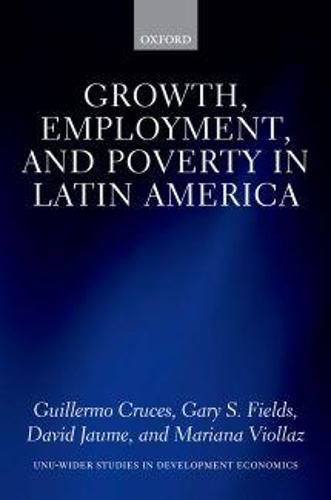This is an open access title available under the terms of a CC BY-NC-SA 3.0 IGO licence. It is free to read at Oxford Scholarship Online and offered as a free PDF download from OUP and selected open access locations. This book examines the links between economic growth, changing employment conditions, and the reduction of poverty in Latin America in the 2000s. Our analysis answers the following broad questions: Has economic growth resulted in gains in standards of living and reductions in poverty via improved labour market conditions in Latin America in the 2000s, and have these improvements halted or been reversed since the international crisis of 2008? How do the rate and character of economic growth, changes in the various employment and earnings indicators, and changes in poverty and inequality indicators relate to each other? Our contribution is an in-depth study of the multi-pronged growth-employment-poverty nexus based on a large number of labour market indicators (twelve employment and earnings indicators and four poverty and inequality indicators) for a large number of Latin American countries (sixteen of them). The book presents a positive and hopeful set of findings for the period 2000 to 2012/13. Economic growth took place and brought about improvements in almost all labour market indicators and consequent reductions in poverty rates. But not all improvements were equal in size or caused by the same things. Some macroeconomic factors were associated with changes in labour market conditions, some of them always in the welfare-improving direction and some others always in the welfare-reducing direction. Most countries in the region suffered a deterioration in at least some labour market indicators as a consequence of the international crisis of 2008, but the negative effects were reversed very quickly in most countries.
Read More





